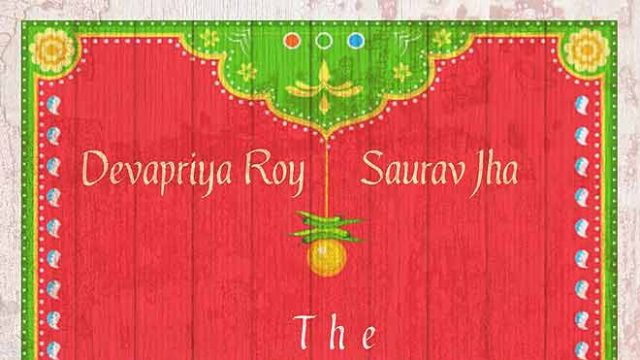Rucksacks, a top for dining with a princess in, a husband and wife on a shoestring budget punctuated by chocolate pancake fixes—those are just some of the ingredients of The Heat and Dust Project. On the face of it, Saurav and Devapriya are two stylish DINKs who have left big city life behind to travel on Rs 500 a day after exiling their earthly possessions to Kolkata. And all this, so that they can put together a book about meeting interesting people while seeing interesting places.
Hisaab is carefully calculated, ravioli here means phulka and sabzi there and an expensive hotel room in one city means diving into a backwater in another or scrimping on a meal. The result is a series of varied encounters with all kinds of rooms and hoteliers, most of whom look at the young couple in distressed jeans suspiciously, scenting some kind of illicit escapade.
Like sensible co-authors, Saurav and Devapriya have divided the story between them. Saurav is the practical authoritative guide, holding forth on the histories of treacherous dynasties in Rajasthan. Devapriya is atmospheric and whimsical, telling tales of balancing Taj ganache pastries on her knee in a hot overcrowded bus. He is less poetic than she is—though S occasionally breaks character with lyrical reveries on the colours of the sunset sky and descriptions of pigeons bursting out of a step well in a thunder of wings.
Their meanderings cover a multitude of small towns with auto rides and bus journeys joining the dots on the map. There’s an old saying that people go wandering in search of their essential selves. Nostalgia and family memories pepper the trips, discussions with aunts and mothers that lead to discussions about other people’s aunts and mothers along the way, not to mention lovers and other strangers and flights of spirituality thrown in for good measure.
It also means reflections on the subject of how things sound different if written in one’s native language. A jackfruit or a cowpat in Hindi is nothing else but; in English, however, it acquires other nuances depending on who is using the word, whether journo or socialite. Both are, after all, writers.
D and S are disarmingly honest about their successes and failures. 9,999 steps stump them at a Jain temple—they abandon the attempt at the thousandth. The demands of budget backpacking which leads to Camel Safari deprivation fray D’s temper and sets off a meaningless squabble that continues till lunch the next day. Success comes with a Page Three gathering to celebrate the launch of Saurav’s book and lines their pockets.
Chapter 12 closes with the promise of spring reviving a wintry Delhi and that would have been an appropriate end note—the final chapter of catching up in Kolkata with one of the Jewish twins really adds nothing and D’s Kolkata descriptions sadly lack the life of the rest.
Devapriya by herself would probably not have been able to explore half the shady back alleys involved. Male chaperonage was vital and at hand. The result is an amusing balancing act which pivots on the relationship between the two of them, partners in crime, in wandering and in life.




